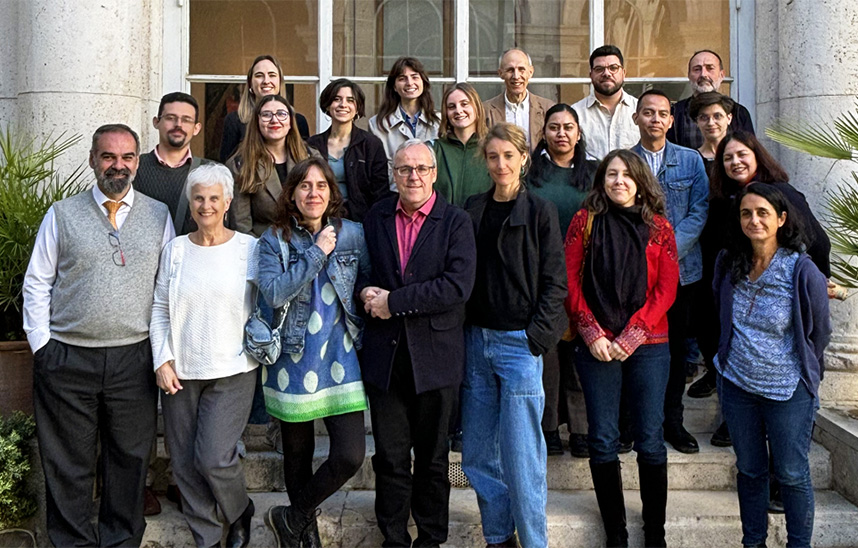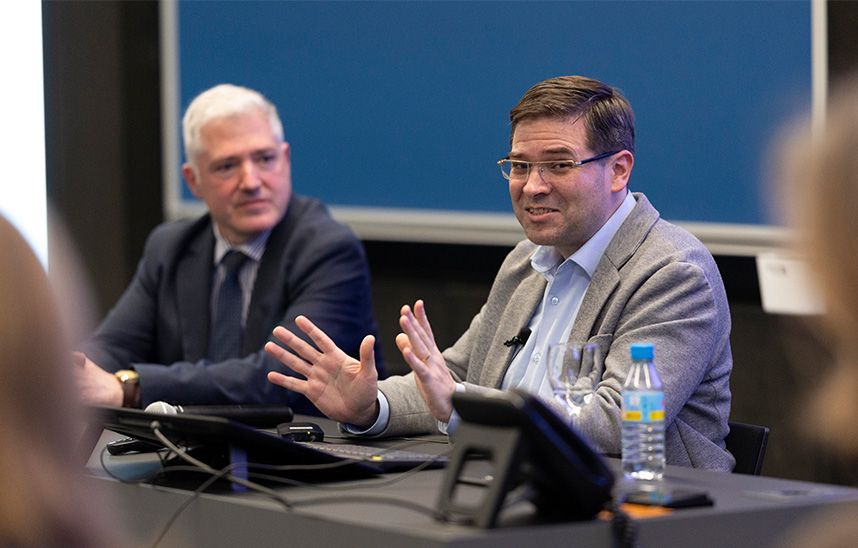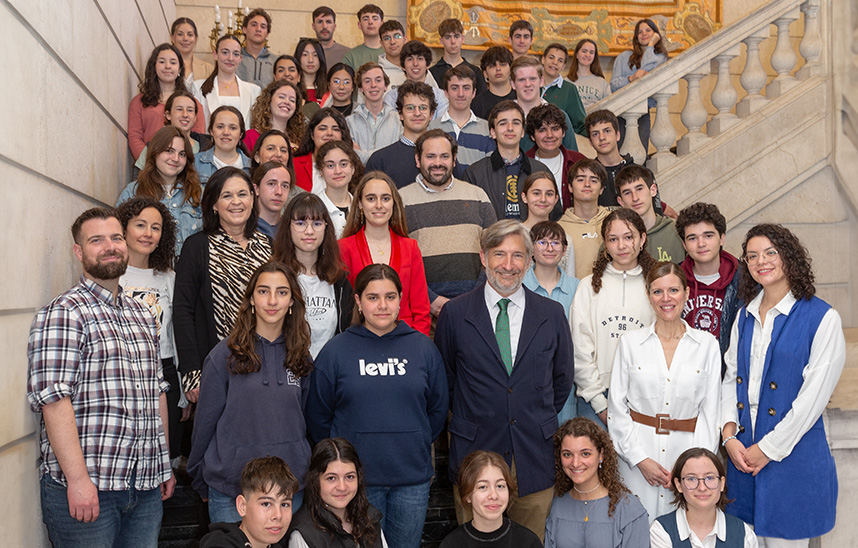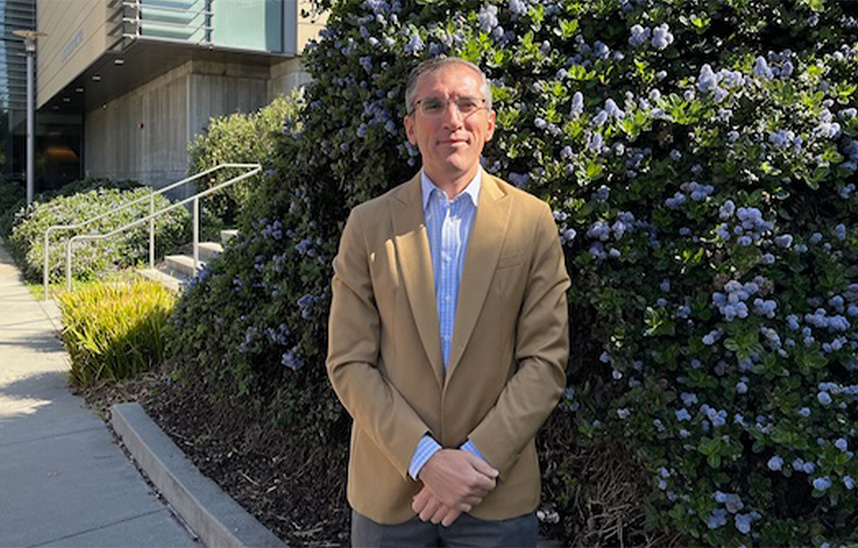noticia_FYL_10_09_2021_ana_iris_simon
Ana Iris Simón: "When reading Feria, my readers read themselves".
The writer presented at the University her first book, which already has twelve editions in Spain.

FotoManuelCastells/Writer Ana Iris Simón signing a copy of her book Feria after its presentation at the University of Navarra Museum.
10 | 09 | 2021
Ana Iris Simón 's baby is wearing mustard socks, a little cowboy, an orange T-shirt. She sleeps clenching her fist, as if clinging to sleep. He hangs from his father's shoulders in one of those newborn backpacks that reveal only his head, the swirl that crowns it and the dangling limbs. The father, Paris, rocks him at the bottom of the conference room. The conference room is one of the workshops of the Museum of the University of Navarra, where Simon presented yesterday Feria, his latest and only book, a revolution publishing house that accumulates already twelve editions in Spain and that has awakened an intense discussion, first intellectual, then social and finally political on the status of the Spanish youth and its history as a generation. The book begins with a declaration of intent: "I am envious of the life my parents had at my age".
The plot of Feria is nothing more than the family history of its author, granddaughter of fairground workers, on the one hand, and of communists, on the other. In the colloquium, which closed the summer course Ellas lo cuentan todo. Women's autobiographical writing, Full Professor Javier de Navascués addressed some questions to Ana Iris Simón, as did the fifty or so students who took part in it. Simón, asked about the case, said that her great surprise upon seeing the success of the book was to discover that the rule exists. I asked myself: "Who's going to care about my life or that of my grandparents? But I'm normal! My story is the story of almost all young Spaniards. Everyone cries at funerals, falls in love and loves their grandmother," she explained.
During the last months there have been readings from all political prisms: it has been said of Feria that it is a nostalgic and even reactionary book, that it presents a happy Arcadia that never was, but also that it is a book that denounces the precariousness of youth. "It seems that if you criticize the bad material conditions you are asking for Franco's return," Simon ironized at colloquium. Asked about the variety of possible readings of her work, the writer quoted Cortázar's famous phrase: he who underlines a book underlines himself. That's what happens to my readers," explained Simón: "when they read Feria, they read themselves".
In the conversation, the importance of the family and the Spanish question, among other topics, were also on the table. "Spain is a problem for any intellectual," he said. She also spoke about the role of the University or the work of writing and editing: "The publisher knows how to see the soul and bring out the truth of the writer", said Ana Iris Simón. At the end of the event, many of the participants approached with copies of Feria to ask for a signature.
The goal of the course "Ellas lo cuentan todo. Women's autobiographical writing" was to show the historical process of women's affirmation in the public space through their representation as writers. The course addressed the first manifestations of autobiographical writing by women, which emerged with European modernity from the 16th century onwards. In addition to Ana Iris Simón, the program also included the participation of writers Anna Caballé, who spoke on "Autobiographical writing and women", and Clara Obligado, who presented her book Una casa lejos de casa, in which she describes her memories in Argentina during the Dictatorship and her arrival in Spain during the Transition.





